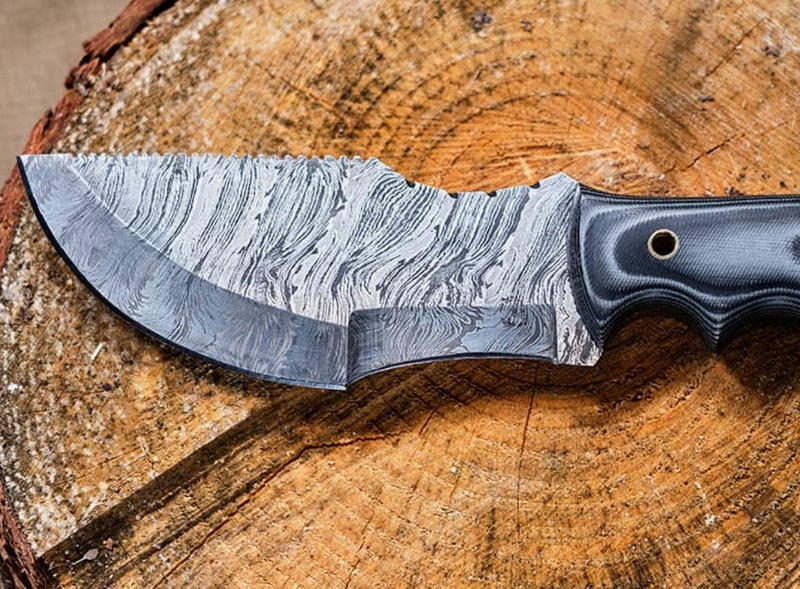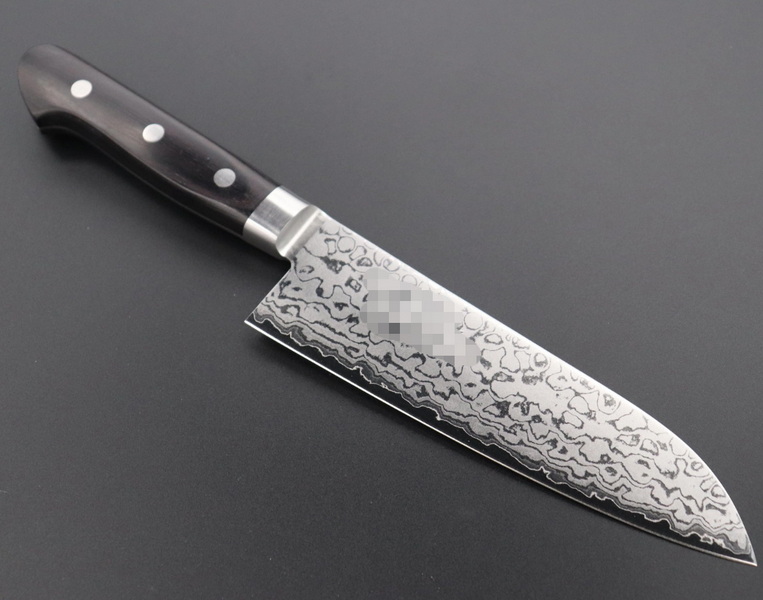- All
- Product Name
- Product Keyword
- Product Model
- Product Summary
- Product Description
- Multi Field Search
Views: 222 Author: Ann Publish Time: 2025-10-14 Origin: Site











Content Menu
● 1. Superior Sharpness and Edge Retention
● 2. Unique Layered Steel Construction
● 3. Durability and Flexibility
● 4. Comfortable and Ergonomic Handle
● 5. Visual Appeal and Craftsmanship
● 6. Authenticity and Quality Assurance
● 8. Blade Thickness and Weight Balance
● 9. Edge Geometry and Grind Type
● 10. Handle Blade Integration (Tang)
● 12. Rust and Corrosion Resistance
● Frequently Asked Questions (FAQs)
>> 1. What sets Damascus knives apart from other kitchen knives?
>> 2. Are Damascus knives harder to maintain?
>> 3. How can I verify the authenticity of a Damascus knife?
>> 4. What handle materials are best for Damascus knives?
>> 5. Are Damascus knives suitable for professional chefs?
Damascus knives are celebrated for combining exceptional sharpness, durability, and stunning aesthetics. As a Chinese kitchen knife factory providing OEM services for international brands, understanding these top features helps you highlight what makes Damascus knives a prized choice for professional chefs and cooking enthusiasts worldwide. This guide explores everything from the unique layered steel construction to handle design and care, offering insights you can incorporate into your marketing and production quality standards.

A Damascus knife is characterized by its pattern-welded steel blade, created by forging multiple layers of different steels together. This layering creates the distinctive flowing or wavy patterns on the blade surface, combining the best attributes of hardness, flexibility, and edge retention.
- The pattern is not only beautiful but a sign of craftsmanship.
- Layering enhances blade strength and performance.
One of the most valued features of a Damascus knife is its ability to maintain a razor-sharp edge for prolonged use. The high-carbon steel core layers retain the cutting edge much longer than standard stainless steel blades, enabling precision slicing with less need for frequent sharpening.
- Razor-sharp initial edge.
- Maintains sharpness longer, improving efficiency.
The process of forging Damascus steel involves layering alternating hard and soft steel types — sometimes over 60 layers — and folding the metal repeatedly. This grants the blade:
- Enhanced toughness and flexibility.
- Resistance to chipping and breaking.
- An artistic wavy surface texture unique to each blade.
Durability is critical for kitchen knives expected to last years of heavy daily use. Damascus knives are resilient due to their composite steel layers, which provide a perfect balance of hardness (for cutting) and flexibility (to avoid brittleness).
- Can withstand tough food prep tasks.
- Resistance to bending under stress.
A high-quality Damascus knife pairs its blade with a handle designed for comfort and grip. Materials such as stabilized wood, pakkawood, or micarta are popular for their durability and aesthetics. Handles should:
- Provide balance to the blade.
- Be securely fastened (no looseness).
- Feature ergonomic shaping for prolonged use.
Beyond performance, Damascus knives are pieces of art. Buyers appreciate the visual sophistication brought by the flowing patterns which reflect hours of specialized craftsmanship.
- Each blade's pattern is unique.
- Added value as a premium kitchen tool.
Beware of counterfeit Damascus knives which might only imitate the pattern with etching or printing. Authentic Damascus knives have:
- Visible layered pattern throughout the blade thickness.
- Pattern consistent on the spine and beveled edge.
- Information or certification from the maker regarding steel composition.
Damascus knives require proper care to keep their sharpness and prevent corrosion:
- Hand wash only, avoid dishwashers.
- Dry thoroughly after use.
- Regular sharpening with appropriate stones.

A quality Damascus knife must also achieve the right balance between blade thickness and overall knife weight to ensure smooth cuts without fatigue. Thicker blades may offer durability but reduce precision, while thin blades enhance agility but may be prone to damage if too fragile. Ideally:
- Thickness ranges from 2.5mm to 3.5mm for kitchen use.
- Balanced weight for control during chopping or slicing.
The blade's edge geometry influences cutting performance significantly. Most Damascus knives feature a double bevel with a sharp angle between 15 to 20 degrees, depending on intended use (Japanese styles tend toward sharper angles). Common grind types include:
- Hollow grind for fine slicing.
- Flat grind for versatile kitchen tasks.
- Convex grind for durability and strength.
The tang—the portion of the blade extending into the handle—affects the knife's strength and balance. Full tang knives, where the metal extends the entire handle length, offer better durability and control compared to partial tang designs.
- Look for fully polished tang and secure rivet fixing.
- Full tang knives are less likely to loosen over time.
Some manufacturers test sharpness by effortlessly cutting through materials like paper or tomatoes to demonstrate precision cutting ability. Such tests can assure buyers of the knife's practical performance standards.
Although Damascus knives have layers of stainless steel to resist corrosion, they still require some care to prevent rust. High-quality Damascus knives use corrosion-resistant alloys balanced with carbon steel layers for edge retention.
- Proper drying and oiling prevent rust.
- Storage in dry environments prolongs blade life.
A quality Damascus knife stands out through superior sharpness, durable layered steel construction, ergonomic design, and unmistakable aesthetic appeal. It balances toughness with flexibility to endure heavy use while maintaining razor-sharp edges. Authentic craftsmanship showcases unique patterning that adds value beyond mere function. By emphasizing these attributes in OEM production, manufacturers can serve chefs and home cooks seeking exquisite cutting tools that blend art and utility. With thoughtful care, Damascus knives become lifelong kitchen companions expressing premium quality and culinary excellence.

Damascus knives feature a unique layered steel forging process that combines hardness, flexibility, and sharp edge retention, along with distinctive patterns that are linked to craftsmanship.
They require careful hand washing and drying to prevent rust but hold their edges longer, so they do not need frequent sharpening.
Look for consistent layered patterns on all blade surfaces, check for a maker's mark or certification, and avoid knives with superficially printed patterns.
Stabilized wood, pakkawood, and micarta handles offer durability and comfort, typically complementing the blade's premium quality.
Yes, due to their sharpness, edge retention, and durability, they are highly favored in professional culinary environments.
The Ultimate Professional Knives for Halal Butchery in Middle Eastern Kitchens
Chef Knife Size Guide: Choosing Between 6″, 8″, 10″, And 12″
Custom Knife Handles: How To Design A Chef Knife That Fits Your Hand Perfectly
Chef Knife Surface Treatments Guide: From Polished Migaki To Damascus Patterns
Inside Our Professional Knife Sample Room: Quality You Can See
Universal Knife Block Buying Guide: Modern Acrylic & ABS Knife Holders for Professional Kitchens
Universal Knife Block: The Complete Guide To Modern, Hygienic Knife Storage
The Complete Guide To Red Handle Knife Sets: Style Meets Functionality in The Kitchen
Professional Knives for Halal Butchery And Middle Eastern Cuisine